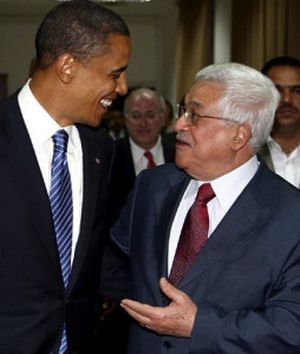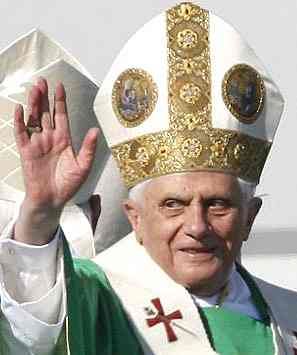
Publisher:
Bonnie King
CONTACT:
Newsroom@Salem-news.com
Advertising:
Adsales@Salem-news.com

~Truth~
~Justice~
~Peace~
TJP
Mar-14-2013 23:04

 TweetFollow @OregonNews
TweetFollow @OregonNews
Khalidi to Obama: Time For a New Course
Dr. James M. Wall Salem-News.comIt isn't too much to expect Obama to inform Netanyahu that the U.S. government will now change to a new course in its dealings with Israel’s occupation.
 European Pressphoto Agency |
(CHICAGO) - The New York Times performed a valuable service for its readers on Wednesday, March 13, exactly one week before President Obama is scheduled to arrive on his first-ever presidential visit to Palestine and Israel.
The Times contrasted the major media voice of the liberal Zionism of the American ruling classes, with that of the voice of a champion for the Palestinian people.
Which of these voices do your leaders, political, media, or religious. respond to? As President Obama prepares to fly to Tel Aviv, this would be a good time to visit, write or call those leaders and ask them.
The Times paired its resident liberal Zionist columnist, Thomas Friedman (Mr. Obama Goes to Israel), with Palestinian-American Middle East scholar Rashid Khalidi (Is Any Hope Left…”?), Obama’s University of Chicago academic colleague and good friend.
In his column, Friedman reiterated liberal Zionism’s formulaic belief that the Middle East must be made over entirely in an empirical US/Israel image.
Friedman wants Obama to say to Israel’s leaders:
- After all, you have a huge interest in trying to midwife a decent West Bank Palestinian state that is modern, multireligious and pro-Western — a totally different model from the Muslim Brotherhood variants around you.
Who defines “decent”? And who determines if Israel qualifies as “multireligious”? The answer is, Thomas Friedman, the media maven of US liberal Zionism. (Wikipedia: “maven comes from Hebrew, via Yiddish, and means one who understands, based on an accumulation of knowledge.”)
Khalidi has his own abundance of “accumulated knowledge”, far more than enough to serve as a Palestinian maven for his old friend now in the White House. Khalidi is currently a professor of modern Arab studies at New York’s Columbia University. His latest book is Brokers of Deceit: How the U.S. Has Undermined Peace in the Middle East.
Khalidi begins his Times column with a question:
- What should Barack Obama . . . do about the Israeli-Palestinian conflict?
- First, he must abandon the stale conventional wisdom offered by the New York-Washington foreign-policy establishment, which clings to the crumbling remnants of a so-called peace process that, in the 34 years since the Camp David accords, has actually helped make peace less attainable than ever.
The President traveled to Israel as a candidate in 2008. The picture of Obama and President Mammoud Abbas (above) was taken on that trip.
It was Obama’s second de rigueur trip to Israel, both taken for mandatory political purposes. His first presidential trip will set the tone for his entire second term foreign policy.
It is a far more serious journey this time because he is facing an international growing sense of outrage over Israel’s occupation, and its refusal to change course.
Unlike 2008, on next week’s trip Obama will not travel to Ramallah. Would the West Bank be too “dangerous”, as Israeli tour guides like to tell tourists or pilgrims? Or could it be that by avoiding Ramallah, Obama would not have to visit the Ramallah burial site of the late Palestinian leader, Yasir Arafat.
Not to visit Arafat’s Ramallah burial site would be especially egregious since next week’s itinerary already includes Obama visits to several symbolic Israeli sites:
- In addition to Yad Vashem, the Holocaust memorial that is an obligatory stop for every visiting head of state, the president will lay a wreath at the grave of Theodor Herzl, the writer who is considered the father of modern Zionism.
Instead of traveling to Ramallah, President Obama will go to Bethlehem, where he will be received by Palestinian President Mahmoud Abbas.
By going to Bethlehem, Obama will see, up close and personal, the wall that surrounds the birthplace of the Christ child.
With all the excitement over the elevation of Pope Francis, the first Jesuit pope, this is a good time to recall that when the now-retired Benedict XVI made a 2009 papal visit to Bethlehem, he was photographed standing in front of a wall with graffiti behind him, illustrating how locals feel about the the occupation wall.
The Guardian’s May 13, 2009 story, should be studied by President Obama’s trip planners.

- Pope Benedict XVI (right) held his hands out wide to greet a crowd of applauding Palestinian refugees in the afternoon sun. Behind him stood the most striking symbol of Israel’s occupation: a paint-spattered military watchtower rising above the tall, concrete wall that presses on Bethlehem.
ulAll around him were paintings, posters and graffiti proclaiming the Palestinian cause and their hopes from their papal visitor. From an apartment block to his left hung a poster in English and Italian: “We need bridges not walls.”
- On a balcony beneath, a Palestinian couple sat with their children, looking down as the pope waved back to them.
- Today the pope made his strongest call yet for a “sovereign Palestinian homeland”. He said mass in Bethlehem’s Manger Square and offered his “solidarity” to the Palestinians of Gaza, telling them he wanted to see the Israeli blockade of the coastal strip lifted.
- Later, he was driven in to the UN school in the Aida refugee camp on the edge of Bethlehem, home to refugees who in 1948 were forced out or fled their homes in what is now Israel.
What has happened to the birthplace of the Christ child is one of the reasons Rashid Khalidi used his New York Times column to remind President Obama that his administration continues a US policy which since 1993 has failed to prevent Israel, as Khalidi puts it, “from gradually gobbling up the very land the two-state solution was to be based on”.
Furthermore, Khalidi writes, the number of Israel settlers living in illegally occupied land, has steadily increased under four successive presidents, growing from 200,000 in 1993 to almost half a million today.
Khalidi continues:
Toward the end of his first term, Mr. Obama essentially abandoned his already modest peacemaking agenda in exchange for a lull in Prime Minister Benjamin Netanyahu’s campaign for war with Iran. Palestine was again sacrificed, this time to bribe a belligerent Israel for temporary good behavior.
- The American-led “process” has ultimately strengthened the Israeli far right and made Palestinian self-determination more unattainable than ever. Continuing with the Orwellian grotesquerie that is the “peace process” is contrary to any enlightened definition of American self-interest. . .
Khalidi concludes with this strong admonition to his friend:
- For Mr. Obama, a decision is in order. He can reconcile the United States to continuing to uphold and bankroll an unjust status quo that it helped produce. Or he can begin to chart a new course based on recognition that the United States must forthrightly oppose the occupation and the settlements and support an inalienable Palestinian right to freedom, equality and statehood. There is no middle way.
It would be too much to expect President Obama to echo Ronald Reagan’s Berlin Wall speech with a passionate Bethlehem speech that would demand that Israel “tear down this wall”.
But it is not too much to expect Obama to inform Benjamin Netanyahu that the United States government will now change to a new course in its dealings with Israel’s occupation. Anything less would be a serious setback to the hopes of both Palestinians and peace-loving Israelis.
http://wallwritings.me/2013/03/14/khalidi-to-obama-time-for-a-new-course/
Please visit James Wall's Website, Wall Writings
 Journalism was Jim Wall’s undergraduate college major at Emory University, Atlanta, Georgia. He has earned two MA degrees, one from Emory, and one from the University of Chicago, both in religion. An ordained United Methodist clergy person; he and his wife, Mary Eleanor, are the parents of three sons, and the grandparents of four grandchildren. They live in Elmhurst, Illinois.
Journalism was Jim Wall’s undergraduate college major at Emory University, Atlanta, Georgia. He has earned two MA degrees, one from Emory, and one from the University of Chicago, both in religion. An ordained United Methodist clergy person; he and his wife, Mary Eleanor, are the parents of three sons, and the grandparents of four grandchildren. They live in Elmhurst, Illinois.
Jim served for two years on active duty in the US Air Force, and three additional years in the USAF (inactive) reserve. While serving with the Alaskan Command, he reached the rank of first lieutenant. He has worked as a sports writer for both the Atlanta Journal and Constitution, was editor of the United Methodist magazine, Christian Advocate for ten years, and editor and publisher of the Christian Century magazine for 27 years, starting in 1972. Time magazine wrote about the new editor, who arrived at the Christian Century determined to turn the magazine into a hard-hitting news publication. The inspiration for Wall Writings comes from that mindset and from many other sources that have influenced Jim’s writings over the years, including politics, cinema, media, American culture, and the political struggles in the Middle East. Jim has made more than 20 trips to that region as a journalist, during which he covered such events as Anwar Sadat’s 1977 trip to Jerusalem, and the 2006 Palestinian legislative election. He has interviewed, and written about, journalists, religious leaders, political leaders and private citizens in the region. You can write to Jim Wall at jameswall8@gmail.com. Visit Jim's Website: Wall Writings
 |
 |
 |
Articles for March 13, 2013 | Articles for March 14, 2013 | Articles for March 15, 2013


googlec507860f6901db00.html



Terms of Service | Privacy Policy


All comments and messages are approved by people and self promotional links or unacceptable comments are denied.
[Return to Top]
©2026 Salem-News.com. All opinions expressed in this article are those of the author and do not necessarily reflect those of Salem-News.com.